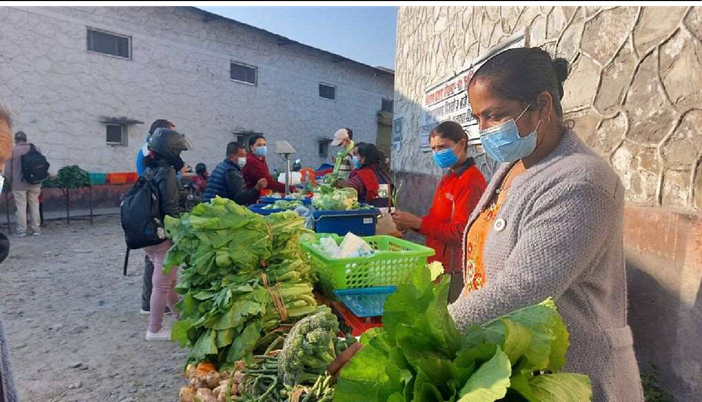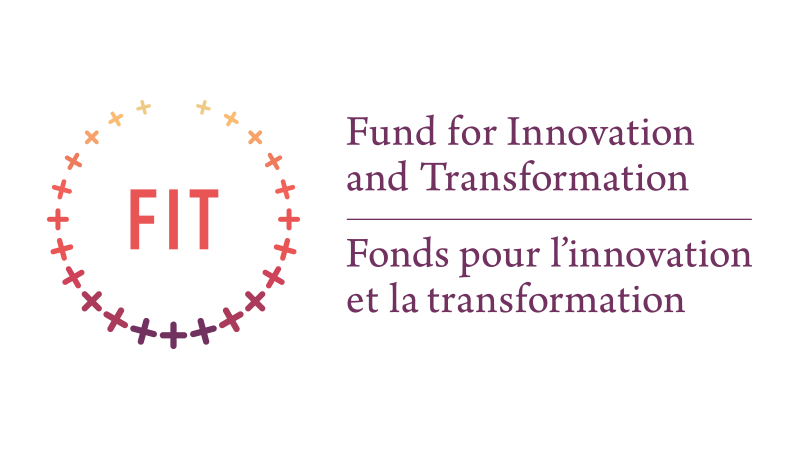
Winnipeg-based iDE Canada is working with many women farmers in Nepal to introduce and support the use of integrated pest management, an agricultural approaches that reduce pesticide use. The project is funded through the Fund for Innovation and Transformation.
POINT DOUGLAS
A Winnipeg-based organization is helping fund sustainable development worldwide.
The Fund for Innovation and Transformation is a national program managed through the Manitoba Council for International Cooperation, a coalition of 44 organizations involved in international development.
"We work with our members to amplify the work that they're doing, as well as provide capacity building in how to do good development," explained MCIC executive director Janice Hamilton.
Through funding from the provincial and federal governments, the council promotes sustainable development goals, working with schools and youth and community organizations around Fair Trade and sustainability issues. Launched in 2020, the Fund for Innovation and Transformation has provided capital for 42 Canadian pilot projects, including four out of Manitoba.
"We're funding organizations from across Canada, small and medium sized organizations, which spend less than $2 million on international work, to test innovative solutions to advance gender equality and improve lives of women and girls globally," Hamilton said. "Organizations are using this fund to test whether their programs are working or not, with the hope of getting additional funding, or use it in another area."
With offices on Higgins Avenue, iDE Canada is one such organization.
"They have funding to work in Nepal, to work with women around safer practices for vegetable production," Hamilton said. ''They're trying to work with consumers, trying to work with Nepalese consumers that low pesticide production methods are better and can pay higher prices in market for using that method. The women already know how to do this, so it's a matter of building up the market."
"We believe there is a growing market for this produce as upper-middle class Nepalese people look for safer, healthier produce in their local markets," Stu Taylor, chief executive officer for iDE Canada, said. "This will, in turn, support these small scale farmers, who are mainly women, to make more money."
The project fits nicely with the other projects iDE has helped get off the ground.
"When we started, 40 years ago, this was a novel concept," Taylor added. "iDE really pioneered the idea of using business to create social change. It's become much more mainstream now."
Along with the FIT project in Nepal, iDE is currently working on a project in Ghana to scale up access to safe toilets.
"We've worked with local businesses doing stuff in concrete, and we've worked with them to build a toilet that doesn't collapse during rainy season," Taylor said.
The group has also recently launched fundraising for its Paul Pollack Innovation Fund.
"We're wanting to nurture early-stage ideas that might be the next big, game changing idea," Taylor said. "The funds we raise here in Canada, one way those funds can have a big impact is by putting them towards those new ideas."
Another local group getting FIT funding is the Exchange-based Make Music Matter.
"They're an amazing group," Hamilton said. "They work in a very niche area, a healing and harmony program, using music to work with people who have been traumatized."
Support from the fund will allow Make Music Matter to test expansion of its Healing Harmony program in the Democratic Republic of Congo.
"They focus on positive masculinity, addressing traditional gender roles and issues around gender equality and sexual violence," Hamilton said. "It's fascinating."
For more information, visit fit-fit.ca
Written by Sheldon Birnie, Staff Reporter, The Herald - Winnipeg Free Press Community Review


